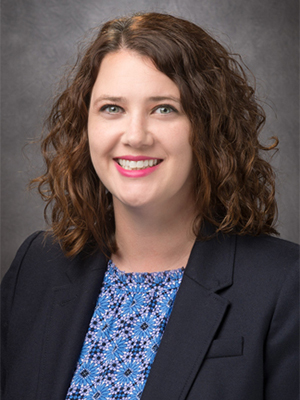
Teresa Van Oort, Clinical program manager of social work at the University of Texas MD Anderson Cancer Center in Houston. Photo courtesy of Teresa Van Oort
I’m doing OK with my cancer, but many people I’ve known with cancer have died. How can I begin to process my feelings about this?
TERESA VAN OORT: I recommend that people take a step back and realize first that everybody’s cancer—even if it looks the same on paper—is a very different experience. Every cancer journey is unique. You can mourn your loss without having that detract from your own more positive outcome.
Recognize also that survivor’s guilt is common after a cancer diagnosis. It comes up most often in situations where people of different generations interact. People may feel as though they’ve somehow done something wrong to have survived, perhaps as an older person, when someone else did not. The way to begin to process this is to talk about what has occurred. Allow yourself to feel those feelings and then work with healthy ways to process them.
Sometimes it helps to find something you can do. Perhaps you can volunteer for an organization, write an article or provide monetary support to a charitable organization or an individual in need. I had an older patient who had a leukemia diagnosis and got through a stem cell transplant with no issues, while someone else, a much younger person, passed away. She wrote letters to the person who had passed, which helped her process those emotions instead of bottling them up.
Another reason that survivors often struggle with the passing of others may be pressure from friends and family to just move on. Your friends and family may not understand why you are still thinking about this, but you are having a normal response.
These thoughts or feelings can be entirely normal, but in extreme cases they also can morph into more dangerous thoughts such as, “Maybe I don’t deserve to be here.” If you find you are having those kinds of thoughts or ruminating on questions such as, “Why did I survive and they didn’t?” and it’s preventing you from moving forward in your own life, then it’s time to seek professional counseling. If these thoughts turn toward harming yourself or ending your life, the U.S. National Suicide Prevention Lifeline (suicidepreventionlifeline.org) provides free and confidential support at any time and can be reached at 800-273-8255.
PROCESSING LOSS // Memorial Sloan Kettering Cancer Center explains why guilt can be a lasting side effect for cancer survivors. // The Patient Empowerment Network offers tips on how to cope with grief and loss.
Cancer Today magazine is free to cancer patients, survivors and caregivers who live in the U.S. Subscribe here to receive four issues per year.




